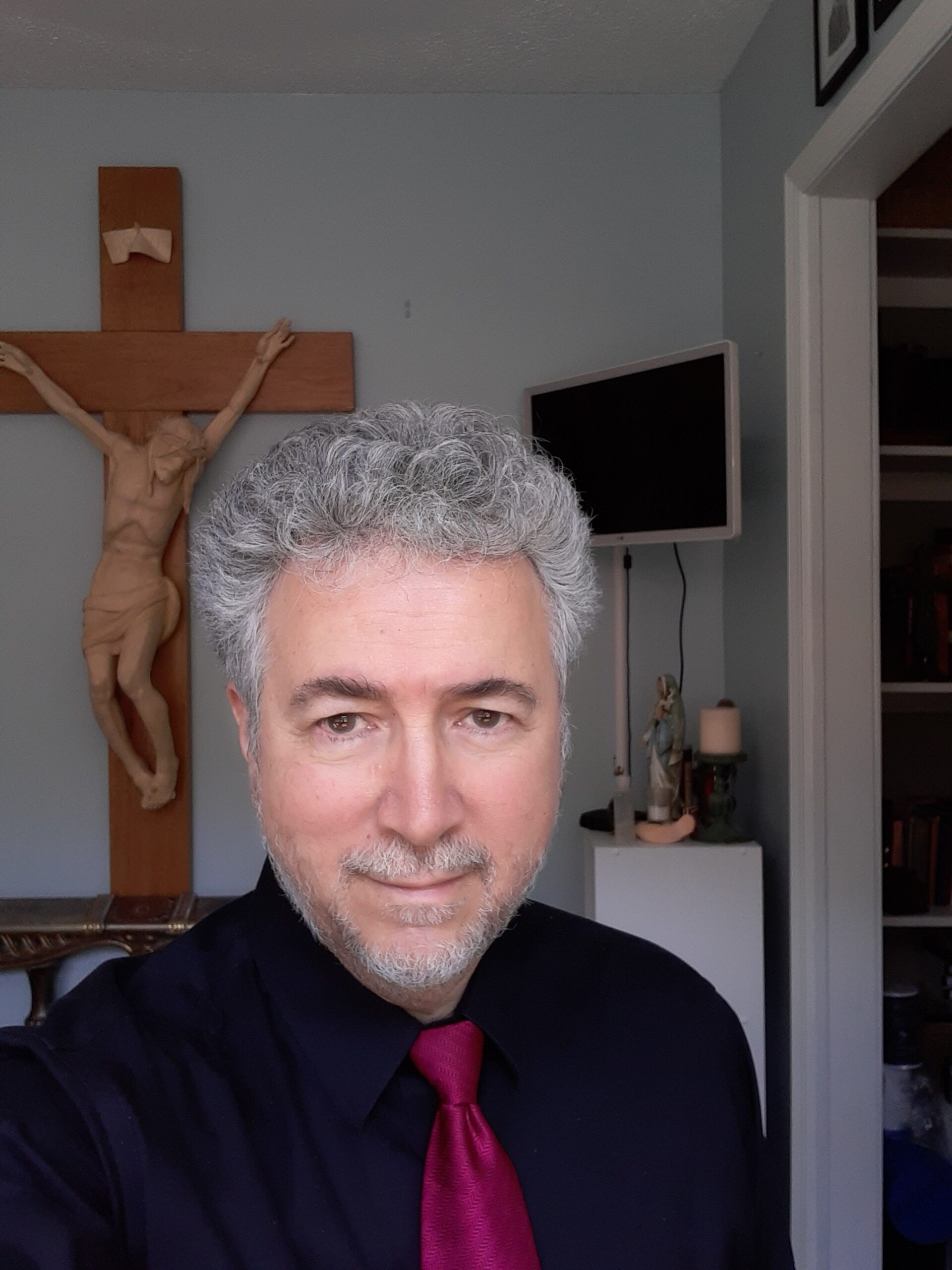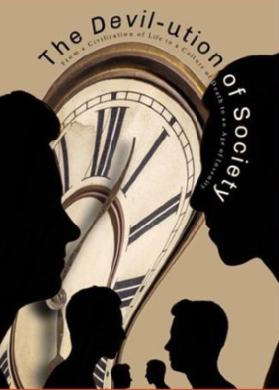The New Oxford Review Oct. 2024
The Devil-ution of Society: From a Civilization of Life to a Culture of Death to an Age of Insanity
By Paul Murano
Publisher: En Route Books & Media
Pages: 140, Price: $14.95
Review Author: David D. Jividen
Just as Washington Irving did in his short story “Rip Van Winkle,” Paul Murano in his slender book The Devil-ution of Society uses the literary device of a character returning after being frozen in time to highlight generational changes. Unlike Irving’s title character, who, after a 20-year absence, still recognizes his town’s societal and familial norms, Murano’s Catholic protagonist, Danny, is thrown off balance by the seismic societal changes in the moral fabric of the United States during his time away.
Through gripping dialogue reminiscent of Peter Kreeft’s apologetic “meeting” books, such as Socrates Meets Jesus, Murano uses Danny’s “Rip Van Winkle” experience to highlight the familial, political, and educational differences in the United States between the span of 1965 to 1999, and then between 1999 and 2024, when Danny’s friend Joe has a similar experience. The book paints a stark and unsettling contrast between the condition of American society in these eras and gives the reader, to paraphrase the poet W.B. Yeats, the reasons why the blood-dimmed tide was loosed everywhere the ceremony of innocence was drowned.
The Devil-ution of Society also makes clear what compounds the societal tragedy. In conversation with his friend, Danny declares that besides the expanding culture of death (in 1999), what baffles him “is the acceptance and lethargy of people like you, Catholics, who know the truth. Why aren’t Catholics and other Christians, as well as all people of good will, deeply alarmed about this?” Joe simply replies, “Well, I just don’t know.”
By the time 2024 rolls around, Joe shares Danny’s concern. He realizes that if “Catholics were Catholic, the world would be transformed,” and, failing that, “Catholics will probably be judged most harshly on judgment day.” Still, hope is kept alive as Joe hears that “there are still converts entering the Church every Easter vigil,” and “despite all the real corruption and negative propaganda, converts are still coming home to the Catholic Church.”
By the last page, readers may thank Murano, as I did, for reminding us how we, like the proverbial frog in the slow-boiling pot, arrived at our current post-Christian era. Danny is puzzled by his country, where vice is celebrated as if it were virtue, and the virtuous are on the FBI’s terrorist watchlist. The Devil-ution of Society should not leave us puzzled but rather contrite and retrospective as we recognize how we, through our beliefs, actions, and inactions, got here.
I agree with Kreeft’s endorsement that this is “a delightful thought experiment and a deeply disturbing book.” I would go further. If Catholics are to have a second springtime and help prevent the United States from slouching toward her demise, then this book is a must-read for all who would otherwise suffer the consequences of our further moral deterioration.

